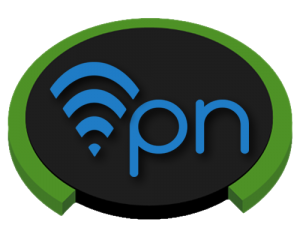It’s 1984 for Australia. Citizens of Australia woke up to a new controversial data retention law that was passed by the Australian senate last Thursday as a means to tighten the grip of online surveillance. Australian telecommunication providers (ISPs) are now authorized to retain users’ data (emails, time and destination of phone calls, text messages,…) for 2 years. In addition, over 2500 officers will be assigned to have unrestricted access to any individual’s metadata; such as: phone calls and internet records without a warrant on daily basis. In other words, for 2 years, the cops will follow internet users around keeping a detailed report of their online activities. A very Orwellian new year for Australians, isn’t it? While this harsh metadata retention law has risen a lot of concern for privacy-minded internet users, it has fortified their need for VPNs. Australians already use VPN services to bypass geo-blocked web content overseas, but with the new metadata retention law, they are urged to protect their metadata with VPN providers and will most likely depend fully on VPNs to anonymize their IPs in order to shield their privacy from the metadata police.
Although the purpose of the metadata bill is to protect Australia from dangerous criminal activities, like: terrorism, trafficking and child pornography, it violates the entire country’s privacy rights and subjects its citizens to a strict surveillance scheme that implicates the idea of democracy. But, there are several ways to protect your privacy and ensure your anonymity online, the best one is through a virtual private network (VPN). You can easily secure your metadata with VPN at a neck-break speed in the slightest.
In this article we will explain how you can protect your metadata with VPN and get around metadata retention laws
More: How to Stay Anonymous Online
How to protect your metadata with VPN?
Picture the internet as a highway that is branched out all over the world. You can upload and download data relentlessly, have access to infinite amount information on any topic you can imagine. You have the key for a gateway to the entire history of a whole planet’s civilization through a click of a mouse. However absolute and omnipotent this idea sounds, the internet is equally insecure. Your online activities and personal information on the internet are vulnerable to cyber threats and many forms of privacy violations, whether this includes hackers, phishers, monitoring by official and unofficial organisations, etc.
This is where VPN comes in. A virtual private network, simply referred to as “VPN“, is a secure wide area network (WAN) that encrypts the traffic you send over the Internet in order to maintain your privacy online. It uses the public infrastructure of the internet to provide individual users with secure access to any web content in absolute anonymity. A VPN service masks your real IP address (which points out your location) and replaces with another from a list of global network of servers located in many parts of the world. They use several protocols to perform their tunneling; OpenVPN, PPTP, L2TP, IPSec, and SSL.
“A VPN provides the highest level of privacy because it applies encryption to the entire session, protecting all applications that access the Web,” says Jason C., administrator at TorGuard .
In this way, your personal information and online activities will not be detected by your ISP, hence, evade monitoring and cyber crimes. In this way, you can secure your metadata with VPN and evade snoopers from accessing your e-mails, online conversations, tracking your internet activities, and so on.
Conclusion
Even though VPNs are known to provide online protection and obscurity to its users against threats, you need to pay attention to a few important things in order to effectively secure your metadata with VPN from your government. You need to make sure to select the best VPN service provider that will indeed guarantee your absolute anonymity and privacy because there are zillions of VPNs nowadays that don’t live up to what they promise their customers. You can check our previous review of some reliable VPN services that offer honest free trials to fully evaluate their services before purchasing. Moreover, to effectively avoid metadata monitoring, it’s recommended to subscribe to a VPN provider that doesn’t keep logs because some VPNs keep traffic logs of their users. It is also advisable to use a VPN that offers extra security features; such as: tunnelling OpenVPN over SSH, malware protection, compatibility with all devices and operating systems. Here’s a list of popular VPNs that are fit for the job.



